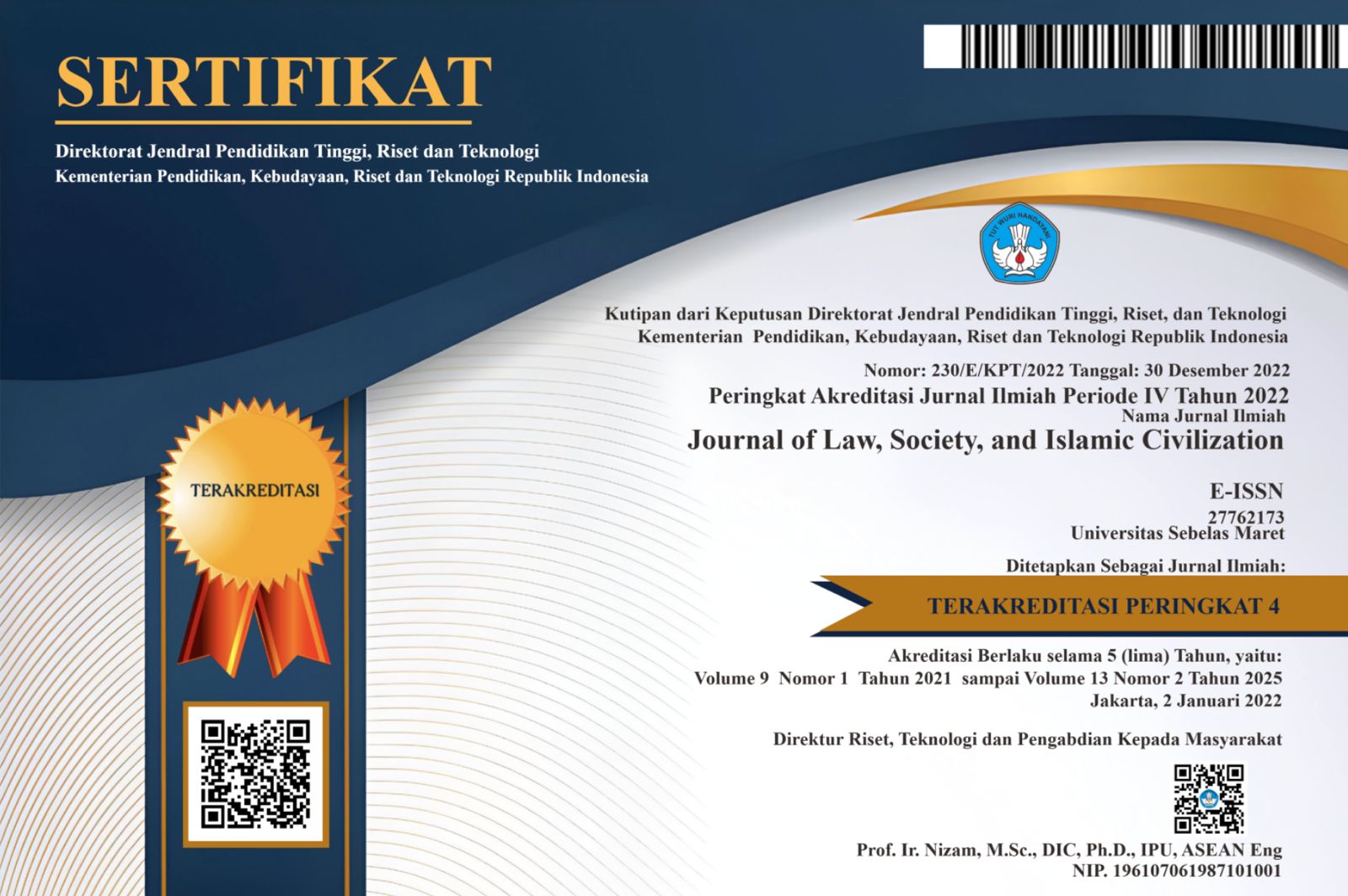Penemuan Hukum (Rechtsvinding) dan Pembentukan Hukum (Rechtsschepping) dalam Sistem Hukum Peradilan Indonesia
Abstract
In Law No. 48 of 2009 concerning judicial power, the legal discovery system is a unit consisting of methods, sources, subjects, schools, and processes for discovering the law. This system provides guidelines for legal discovery subjects in conducting legal discovery in Indonesia. In the Indonesian legal system, the role of judges has evolved beyond merely applying the law to include upholding morality and substantive justice. In the civil law system, the process of Rechtsfinding, or legal discovery, is important when written legal norms are unavailable or inadequate. Judges must refer to legal principles, doctrines, customary law, and general legal principles to fulfill society's sense of justice. This has led to a paradigm shift from passive judges who enforce the law to progressive judges who create law (rechtsschepping). Thus, judges play a crucial role in ensuring the sustainability of adaptive law by striking a balance between legal certainty, justice, and the benefits of law in society. This research uses two approaches: a statutory approach and a conceptual approach. The statutory approach examines all laws or regulations related to the legal issue being addressed. Legal discovery (rechtsvinding) is a crucial yet complex process, as its focus is on the application of written law. Judges must explore the law as it exists in society and cannot dismiss cases simply because there is no regulation. The paradigm shift of judges from a passive role as law enforcers to a more progressive one as lawmakers is a response to the dynamic and complex developments in society.
Keywords
Full Text:
PDFReferences
Auli, R. C. (2022, Juli 15). Penemuan Hukum dan Konstruksi Hukum. Diambil kembali dari HUKUM ONLINE.COM: https://www.hukumonline.com/klinik/a/penemuan-hukum-dan-konstruksi-hukum-lt62d13817f197e/
Badriyah, S. M. (2016). Sistem Penemuan Hukum dalam Masyarakat Prismatik. Jakarta: Sinar Grafika.
Badriyah, S. M. (2011). Penemuan Hukum (Rechtsvinding) dan Penciptaan Hukum (Rechtsshepping) oleh Hakim untuk Mewujudkan Keadilan. MMH, vol. 40, No. 3, 384-392.
Ehrlich, E. (1936). Fundamental Principles of the Sociology of Law (terj. W. Moll). Harvard University Press.
Itmam, M. S. (2021). Pengantar Ilmu Hukum. Cirebon: Nusa Litera Inspirasi.
Mertokusumo, S. (2009). Penemuan Hukum: Suatu Pengantar. Yogyakarta: Liberty.
Nur, M. (2016). Rechtsvinding: Penemuan Hukum (Suatu Perbandingan Metode Penemuan Hukum Konvensional dan Hukum Islam). Jurnal Ilmiah Al-Syir'ah, 2(1).
Rahardjo, S. (2000). Ilmu Hukum. Bandung: Citra Aditya Bakti.
Scholten, P. (1954). Algemene Begrippen van het Burgerlijk Recht (terj. Soebekti & R. Tjitrosudibio). Jakarta: Pustaka Harapan.
Susanto, Anthon Freddy-, (2005). Semiotika Hukum dari Dekonstruksi Teks Menuju Progresivitas Makna, Bandung: PT Refika Aditama.
Soerjono Soekanto. (1986). Pengantar Penelitian Hukum. Jakarta: UI Press.
Soekanto, S., & Mamudji, S. (2001). Penelitian Hukum Normatif: Suatu Tinjauan Singkat. Jakarta: RajaGrafindo Persada.
Undang-undang Nomor 48 Tahun 2009 tentang Kekuasaan Kehakiman, Lembaran Negara Tahun 2009 Nomor. 157, TLN NO. 5076.
Refbacks
- There are currently no refbacks.












